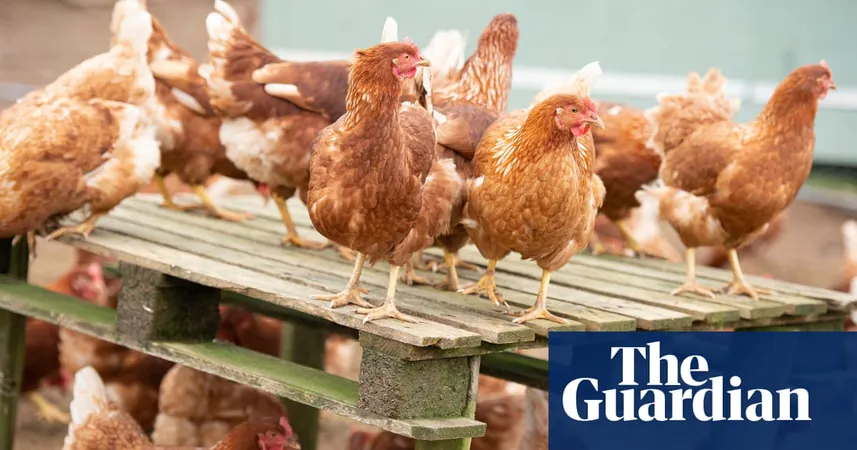
Alarming Bird Flu Mutation Detected in First Severe U.S. Infection - What You Need to Know!
2024-12-27
Author: Ken Lee
Alarming Bird Flu Mutation Detected
In a frightening development, the U.S. Centers for Disease Control and Prevention (CDC) has confirmed that the first severe case of bird flu in the country, reported last week, contains mutations that were previously unseen in samples from the infected birds found on the patient’s property.
Patient Details
The patient, a Louisiana resident over the age of 65, is facing severe respiratory illness due to the virus. The CDC’s analysis revealed that the sample taken from this individual showed uncommon mutations in the hemagglutinin (HA) gene—crucial for the virus’s ability to attach to and infect host cells.
Public Risk Assessment
While the emergence of these mutations is concerning, the CDC has reassured the public that the overall risk remains low. This case marks a significant milestone, as it is the first known severe human infection attributed to the bird flu virus in the United States.
Genotype Information
Interestingly, the infected individual was identified as carrying the D1.1 genotype of the virus. This strain has recently been detected in wild birds and poultry across the U.S., contrasting with other strains like B3.13, which has been found in dairy cows, humans, and various poultry in multiple states.
Global Concerns
It is noteworthy that the mutations found in this case, while rare, have been documented in a handful of severe infection instances worldwide. A similar mutation has also been observed in another severe case reported in British Columbia, Canada, raising concerns about the global spread of these genetic changes.
Transmission Updates
Importantly, the CDC confirmed that there have been no instances of transmission from the Louisiana patient to others, suggesting that close monitoring and preventive measures are effectively containing potential spread.
Ongoing Vigilance
As the situation evolves, health officials continue to urge vigilance, particularly among those who work closely with poultry and wild birds. While the immediate threat to the general population remains low, understanding these mutations and their implications is crucial for public health and safety.
Stay Informed
Stay informed as we monitor this developing story and its potential impact on public health!
 Brasil (PT)
Brasil (PT)
 Canada (EN)
Canada (EN)
 Chile (ES)
Chile (ES)
 España (ES)
España (ES)
 France (FR)
France (FR)
 Hong Kong (EN)
Hong Kong (EN)
 Italia (IT)
Italia (IT)
 日本 (JA)
日本 (JA)
 Magyarország (HU)
Magyarország (HU)
 Norge (NO)
Norge (NO)
 Polska (PL)
Polska (PL)
 Schweiz (DE)
Schweiz (DE)
 Singapore (EN)
Singapore (EN)
 Sverige (SV)
Sverige (SV)
 Suomi (FI)
Suomi (FI)
 Türkiye (TR)
Türkiye (TR)